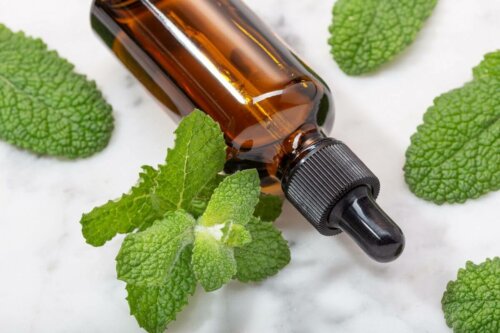Home Remedies for Gastritis in Children


Reviewed and approved by the doctor Leonardo Biolatto
Gastritis in children is the same as in adults. It’s basically the inflammation of the stomach lining caused by different factors, such as bacterial infections, poor eating habits, and stress. This condition is more common in adults, although it can also afflict children. The symptoms range from stomach pain and burning to nausea and vomiting.
Always consult your pediatrician if you notice any warning signs. However, know that this condition doesn’t usually lead to major complications in a child’s health. In any case, it’s possible to mitigate some of its symptoms with the dietary changes listed below.
Home remedies for gastritis in children
An article published in the World Journal of Gastroenterology states that inflammation of the gastric mucosa, better known as gastritis, is a frequent cause of abdominal pain in children. As there are several factors involved, treatment can be multidisciplinary and individualized.
Still, there are some habits and home remedies that can help promote feelings of relief, at least temporarily. They’re not a substitute for medical advice but can definitely reduce the symptoms. Are you ready to take notes?
Eating habits
Most of the cases of gastritis in children originate from bad eating habits. They either don’t have a set schedule for their meals or consume certain types of food that irritate their stomach and cause inflammation and pain.
Childhood requires a specific nutritional intake, so work with a nutritionist who can help you develop a diet just for your little one. Right off the bat, limit their consumption of any food that’s high in refined flours and contains added sugars, acids, and spices. This is because all of these irritate the stomach lining.
Regarding meal times, an article in International Scholarly Research suggests that not having a set schedule for a long period of time is associated with an increased risk of infection by the bacterium Helicobacter Pylori, one of the main causes of gastritis.
Meanwhile, an article published in Gastroenterology Review states that adding fresh broccoli and blueberries to their diet can help improve symptoms associated with gastritis. This is mainly due to its anti-inflammatory and antibacterial properties.

Read more about A Healthy Diet for Gastritis
Garlic extract
Garlic is a proven home remedy for gastritis in traditional medicine. They may not like the taste but find a way to get them to eat it. There’s evidence that it helps fight H. Pylori in the body.
Therefore, crush it with a little bit of honey and use it as adjuvant treatment for gastritis. The child may also ingest it as is, or in extracts.
Probiotics
These are living microorganisms and you can find them in certain foods. People have been using them for millennia to improve digestion. In addition, these good bacteria can increase body resistance to the harmful effects of certain bad bacteria.
In fact, a publication in the World Journal of Gastroenterology points out that probiotics contribute to inhibiting the appearance of H. Pylori. You can get them by eating:
- Yogurt
- Kombucha
- Olives and pickles
- Sauerkraut
- Kefir
- Kimchi
- Miso
Check out the Three Habits that’ll Help Control Your Gastritis
Essential oils
In recent years, the use of essential oils has increased due to its health benefits when it comes to all sorts of conditions, including digestive problems. Actually, a study in antimicrobial agents and chemotherapy suggests they could have a positive effect in inhibiting the excessive growth of H. Pylori.
Garlic and peppermint oils are particularly useful for this purpose. However, use them with caution as they can be poisonous in high amounts. Always follow the manufacturer’s guidelines.

How to prevent gastritis in children
It isn’t common for young children to suffer from gastritis, but this is a condition that can appear at any time. However, there are some things you can do to prevent it, in addition to the ones we mentioned above. Among them:
- Maintain a proper eating schedule
- Feed them at least 2 hours before their bedtime
- Don’t put too much food on their plate
- Help them relax with activities like yoga, meditation, or even just listening to music
When to consult a doctor about gastritis in children?
As we mentioned above, this condition doesn’t pose serious health problems in most cases. However, consult a doctor if the child has severe stomach pain, recurrent vomiting, or some other relevant symptom. They should be able to determine the cause and prescribe treatment.
Finally, keep in mind that the above symptoms aren’t always an indication of gastritis. In fact, they may be due to an entirely different condition altogether. Thus, only a doctor can establish the causes and do any tests needed for a proper diagnosis.
Thanks for reading.
All cited sources were thoroughly reviewed by our team to ensure their quality, reliability, currency, and validity. The bibliography of this article was considered reliable and of academic or scientific accuracy.
- Islek A, Yilmaz A, Elpek GO, Erin N. Childhood chronic gastritis and duodenitis: Role of altered sensory neuromediators. World J Gastroenterol. 2016;22(37):8349-8360. doi:10.3748/wjg.v22.i37.8349
- Bergonzelli, G. E., Donnicola, D., Porta, N., & Corthésy-Theulaz, I. E. (2003). Essential oils as components of a diet-based approach to management of Helicobacter infection. Antimicrobial Agents and Chemotherapy. https://doi.org/10.1128/AAC.47.10.3240-3246.2003
- Cellini, L., Di Campli, E., Masulli, M., Di Bartolomeo, S., & Allocati, N. (1996). Inhibition of Helicobacter pylori by garlic extract (Allium sativum). FEMS Immunology and Medical Microbiology. https://doi.org/10.1016/0928-8244(95)00120-4
- Hołubiuk, Ł., & Imiela, J. (2016). Diet and Helicobacter pylori infection. Gastroenterology Review/Przegląd Gastroenterologiczny, 11(3), 150-154. https://doi.org/10.5114/pg.2016.61487
- Lim, S.-L., Canavarro, C., Zaw, M.-H., Zhu, F., Loke, W.-C., Chan, Y.-H., & Yeoh, K.-G. (2013). Irregular Meal Timing Is Associated with Helicobacter pylori Infection and Gastritis . ISRN Nutrition. https://doi.org/10.5402/2013/714970
This text is provided for informational purposes only and does not replace consultation with a professional. If in doubt, consult your specialist.








